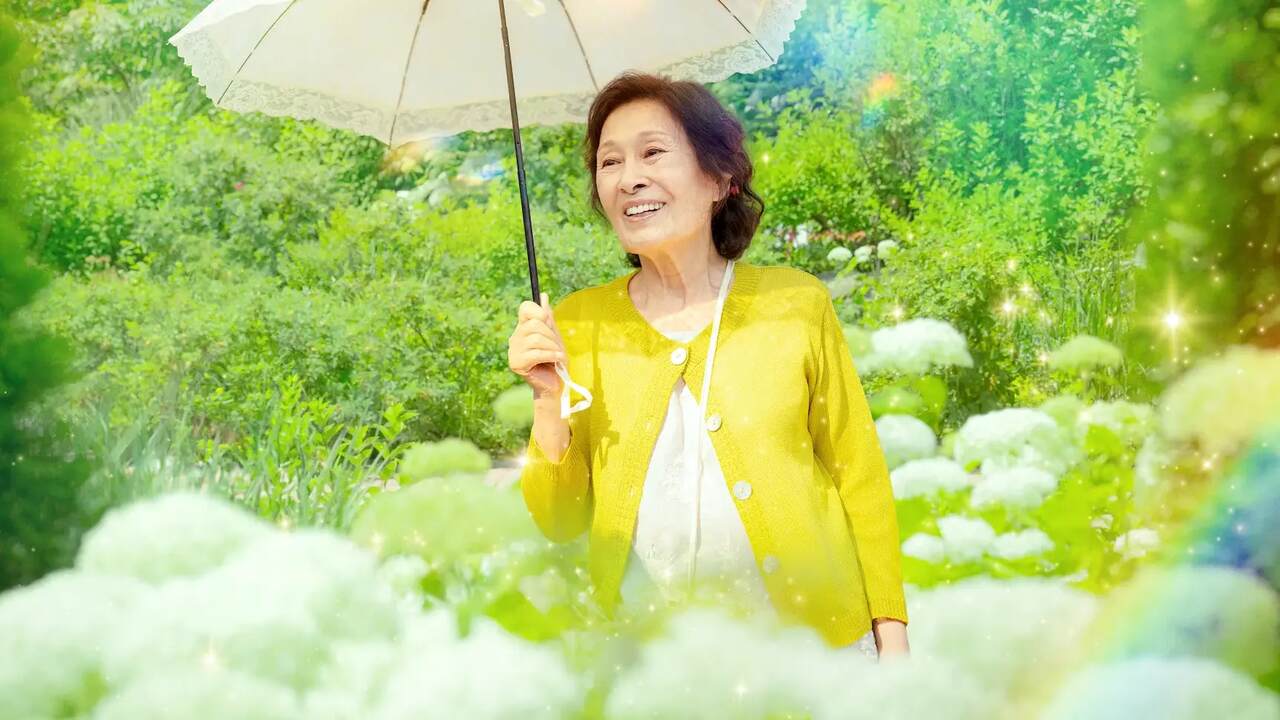
Heavenly Ever After begins where most love stories end—after death. But this afterlife comedy doesn’t play by the usual celestial rules. One woman arrives in Heaven old, exactly as she was when her husband died. The twist? He didn't return the favor. He’s young, radiant, and glowing like a freshly minted influencer. She’s confused. He’s smug. And their reunion? Less “eternal bliss” and more “divine betrayal.”
She’s not just the only one who stayed old for love—she’s the only one who stayed old at all. In Heaven, everyone appears to be in their prime, flaunting youth like it’s mandatory. The setting feels like a wrinkle-free cult with perfect hair. Viewers are immediately hit with the discomfort of watching someone enter this fountain-of-youth fantasy in her final form, robe and all, while the man she loved conveniently upgraded to his thirties the moment he had the chance.
What makes Heavenly Ever After compelling isn’t just its concept—it’s how mercilessly it exposes emotional blind spots. The husband once said, “You’re most beautiful now,” convincing his dying wife to reject eternal youth. But when faced with the same offer, he sprinted toward the mirror. The series cleverly weaponizes vanity and trust, turning a romantic promise into a cosmic slap.
Tonally, the show walks a razor’s edge between dark humor and raw honesty, blending absurdity with emotional depth. It raises uncomfortable, often hilarious questions: Can someone be ghosted in Heaven? Can you file for a heavenly divorce? What happens when your soulmate becomes hotter—and emotionally unrecognizable? These surreal dilemmas play out through sharp, witty writing, standout performances, and an unapologetically cynical lens on love’s longevity and the price of perfection.
Visually, Heavenly Ever After contrasts serene, pastel landscapes with sharp emotional realism. Heaven is stunning but sterile—beauty that feels performative, almost alienating. It sets the stage for internal chaos masked by eternal youth. The protagonist's presence, aged and unfiltered, feels revolutionary among the Botoxed bliss of the afterlife elite.
This is not a love story—it’s a reckoning wrapped in celestial satire. Heavenly Ever After uses humor to dismantle romantic idealism, digging into themes of self-worth, loyalty, and how easily “forever” shifts when vanity enters the picture. Growth doesn’t stop at the gates of Heaven, and the series makes that clear by dragging immortality through emotional chaos, revealing that even in paradise, some betrayals cut deeper than death.
Brilliantly written, bitingly funny, and emotionally gutting when it needs to be, Heavenly Ever After delivers a bold, unsettling twist on romantic fantasy. It dares to ask what truly lasts beyond death—loyalty, beauty, or self-interest. This sharply crafted series isn’t about what happens after you die—it’s about who you become when you’re given a second chance at life, and whether love can survive when faced with vanity and reinvention.
Final Score- [7/10]
Reviewed by - Neerja Choudhuri
Follow @NeerjaCH on Twitter
Publisher at Midgard Times
Hi Everyone, after a due consideration, we have decided that we will be open for donations to help us in managing our website. We will be greatful for any kind of amount we receive. Thanks!
— Midgard Times 🎬 (@Moviesr_net) January 4, 2026
PayPal- [email protected] pic.twitter.com/DlNNz5Npm5
Get all latest content delivered to your email a few times a month.
Bringing Pop Culture News from Every Realm, Get All the Latest Movie, TV News, Reviews & Trailers
Got Any questions? Drop an email to [email protected]